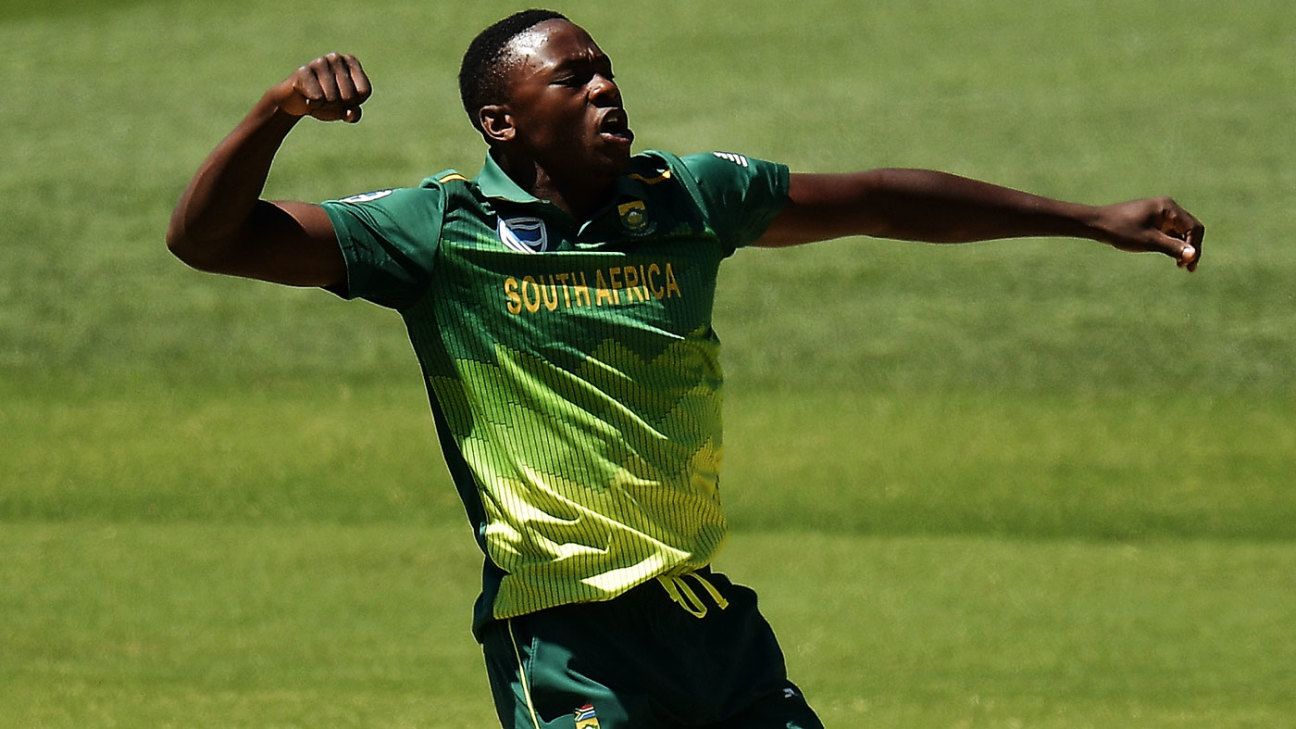'At a professional level, players should be picked on merit'' - Kagiso Rabada - 3 minutes read

Cricket South Africa's transformation targets will not apply at the World Cup, and that's just fine with Kagiso Rabada, who believes that transformation "should happen at the grassroots".
"At a professional level, players should be picked on merit," Rabada told ESPNcricinfo in an exclusive interview recently. "For me, transformation is all about getting an opportunity. I feel that players or people should be given the opportunity as much as possible."
CSA's transformation policy requires that the national team has an average of 55% (or six) players of colour in each game across formats during any given season. They didn't quite hit those targets over the last season, with injuries to players such as Lungi Ngidi and JP Duminy contributing to that, but the rise - and success - of players such as Rabada is sometimes presented as proof that transformation works.
Yet it might also be argued that the opportunities afforded to Rabada in early life were more important than any targets that might have been in place during his career. Rabada went to the prestigious St Stithians College in Johannesburg, while Ngidi attended Hilton College - South Africa's most expensive high school. Andile Phehlukwayo, the only other black player in South Africa's World Cup squad, attended Glenwood High School, a public school in Durban, on a hockey scholarship.
"You are seen as a beacon of hope in terms of transformation and all of that," Rabada said. "People try and justify transformation by using players like us, using players like Lungi.
"Bringing that into the team, obviously if you are doing well and the team is doing well; those topics are going to be raised, and you are going to be seen as an example," Rabada said. "I try not to get too politically involved although I know that there are people who look at me and are influenced by it, especially black children or black people. I know that. It is very obvious. But I do know as well that there are white people who feel the same way."
Despite being held up as an example and role model, Rabada insisted that he does not feel any extra pressure or responsibility to succeed. He does not have blinkers on when it comes to South Africa's troubled past, suggesting that the wounds of apartheid "will never ever leave quickly" and "need time" to heal, but his personal motivation is simply "wanting to be the best". He is also setting up a foundation to give others the opportunities he has had.
"I started playing cricket because I liked to play sport," Rabada said. "I started doing well in cricket when I was in school. All I wanted to do from then on was to just keep improving and, hopefully, one day represent my country and then I had other aspirations like wanting to be the best and learning my skill. That's why I play cricket. That was my first aspiration as a cricketer. As you grow up you realise you are an inspiration [to others]. I do my best to give back.
"I believe in opportunity. You have to give the opportunity. From there players should get picked fairly. For instance, I've got a foundation coming up - the Kagiso Rabada Foundation. That is just going to give an opportunity. It should be like that in most other platforms, not just cricket. In the past, it was an unfair system. Right now it should be fair, but just because you are black you should not be gifted opportunities."
The full interview with Kagiso Rabada will be published on June 1.